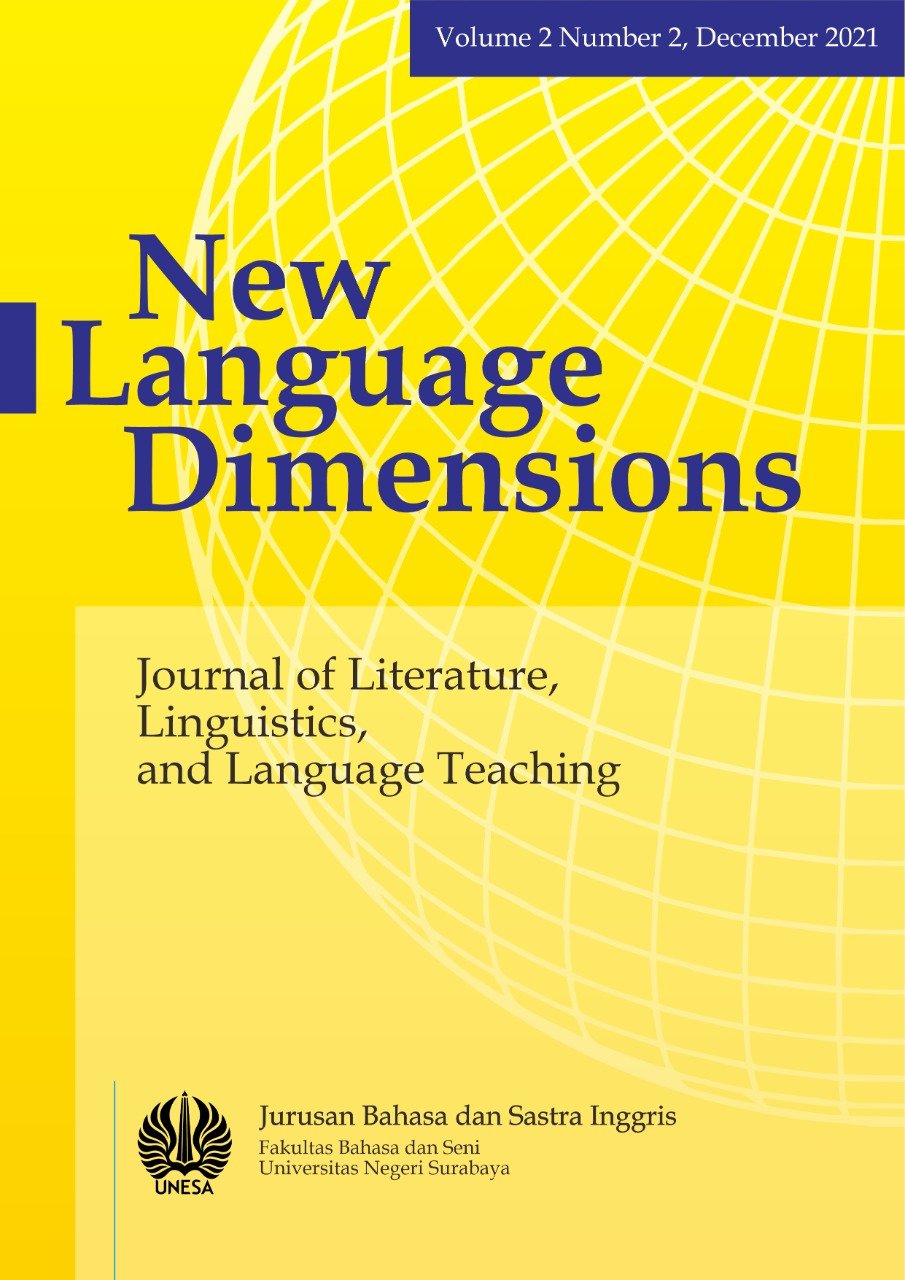Modified Peer Written Corrective Feedback on Dialogue Drafting of Twelfth Graders: Focusing on Linguistic Features
DOI:
https://doi.org/10.26740/nld.v2n2.p60-69Abstract
Writing skill is regarded as troublesome for students, leading to errors occurring in the students’ writing. Thus, this paper aims to explore the linguistic feature errors in students' writing and how those errors can be minimized by modified peer-written corrective feedback. This study employed a qualitative method with Classroom Action Research (CAR) design through content analysis. The data was collected from vocational high school students’ composition of the dialogue draft on the ‘offering help’ theme. The results reveal that apart from their level of proficiency, students make errors more on linguistic features in their first phase than in their second phase. It is due to the role of modified peer-written corrective feedback given by their peers of different groups. This feedback assists the students in learning their linguistic aspect errors in their writing. In the process of writing, the modified written corrective feedback is imperative to spur students to apply good linguistic features in their writing. In such a case, learning from peer feedback is a good technique since the process becomes the priority rather than the final product. Finally, modified peer-written corrective feedback is effective in enhancing the students’ writing skills, particularly in writing dialogue.
Downloads
References
Bitchener, J., & Storch, N. (2016). Written corrective feedback for L2 development. Multilingual Matters.
Brown, H. D., & Lee, H. (2015). Teaching by principles: An interactive approach to language pedagogy (4th ed). Pearson Education Inc.
Creswell, J. W., & Creswell, J. D. (2018). Research design: Qualitative, quantitative, and mixed methods approaches, (5th ed). Los Angeles: SAGE.
Ferris, D. (2011). Treatment of error in second language student writing. University of Michigan Press.
Flora, F., Farhana, S., Nisa, K., & Mentari, R. (2020). The proportion of Peer Corrective Feedback (PCF) on writing aspects: Are they really effective? In A. for C. Machinery (Ed.), The 4th International Conference on Learning Innovation and Quality Education Surakarta. https://doi.org/10.1145/3452144.3453835
James, C. (2013). Errors in language learning and use: Exploring error analysis. Routledge.
Krippendoff, K. (2018). Content analysis: An introduction its methodology. Sage publications.
Pawlak, M. (2014). Error correction in the foreign language classroom: Reconsidering the issues. Springer Science & Business Media.
Peterson, S. S. (2013). Peer feedback on writing: An assessment for learning. Research for Teacher.
Richards, J. C., & Renandya, W. A. (2002). Methodology in language teaching: An anthology of current practice. Cambridge university press.
Downloads
Published
Issue
Section
 Abstract views: 398
,
Abstract views: 398
, PDF Downloads: 271
PDF Downloads: 271











